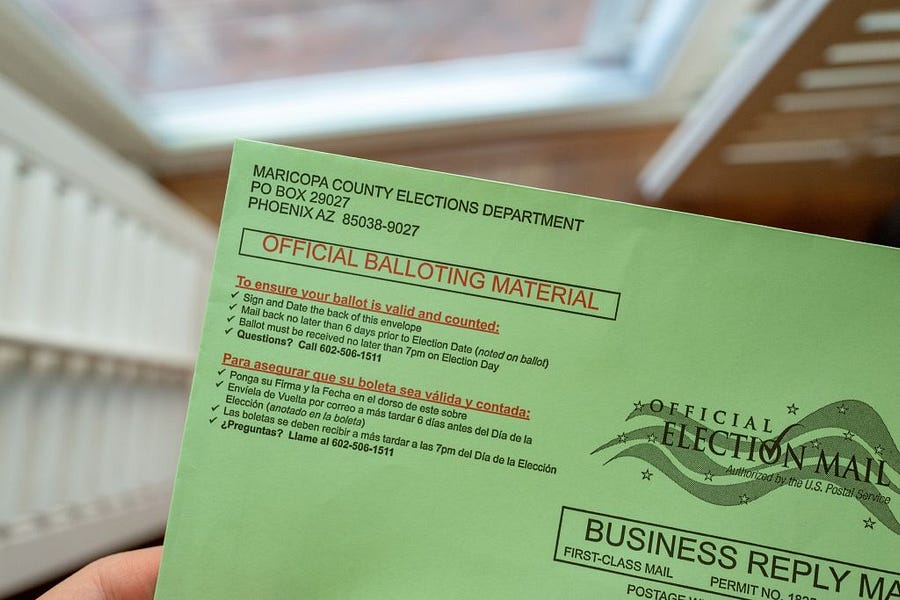After the House Oversight Committee reviewed Arizona’s unofficial election “audit” Thursday, familiar false claims of voter fraud in Maricopa County continue to spread online.
Liz Harrington, Donald Trump’s chief spokeswoman, tweeted that the Maricopa Audit revealed that “23,000 mail-in ballots came from people who NO LONGER lived at that address.”
This claim comes from the official results of the Cyber Ninja “audit report,” which, as we’ve noted previously, said that “mail-in ballots were cast under voter registration IDs for people that may not have received their ballots by mail, and no one with the same last name remained at that address.” The claim, according to the report, is that 23,344 ballots were “impacted under this condition.”
The claim, more simply, is that voters voted using prior addresses.
This is false.
Maricopa County officials explained: “[R]egistered voters move, and they are legally allowed to update their addresses after the voter registration period and vote in-person or by mail.” Because ballots are considered official election mail, they can’t be forwarded to another address, officials said.
Maricopa County officials also said that they had “reviewed hundreds of the voter IDs provided in the referenced report’s appendices and found no instances a voter illegally voted from a prior address.”
They also explained that based “on our preliminary review of voters found in the Senate’s data, we cannot substantiate Cyber Ninjas’ conclusions based on the use of a third party data set. No voter should be denied their right to vote because they are not in a commercial database.”
Officalis added that Maricopa County relies “on the voter’s affirmation of their residential address until we are informed otherwise by the voter or by another trusted resource like the United States Postal Service or the National Change of Address report. A real-time database that tracks the day-by-day movement of every person in the state or in the nation does not exist.”
Douglas Jones, associate professor of computer science at the University of Iowa, also explained why the report’s claim is not true, noting that the report compares voter lists with commercial personator data, which Jones called “a very questionable methodology.”
In an email to The Dispatch, Jones previously noted that a change of address with the postal service does not mean a change of voting address. He further explained that a person might take a three-month long vacation and change an address with the postal service, without changing a voter address.
If you have a claim you would like to see us fact check, please send us an email at factcheck@thedispatch.com. If you would like to suggest a correction to this piece or any other Dispatch article, please email corrections@thedispatch.com.









Please note that we at The Dispatch hold ourselves, our work, and our commenters to a higher standard than other places on the internet. We welcome comments that foster genuine debate or discussion—including comments critical of us or our work—but responses that include ad hominem attacks on fellow Dispatch members or are intended to stoke fear and anger may be moderated.
You are currently using a limited time guest pass and do not have access to commenting. Consider subscribing to join the conversation.
With your membership, you only have the ability to comment on The Morning Dispatch articles. Consider upgrading to join the conversation everywhere.